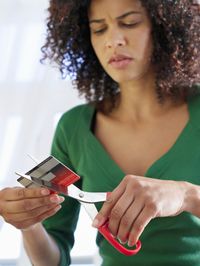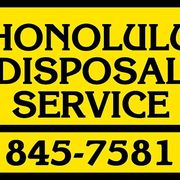How to Protect Your Privacy in Personal Trash & Recycling

When it comes to privacy concerns, many people know to be mindful of what they share online or speak aloud. However, what some people may not know is that trash and recycling containers left on the curb are also vulnerable to data breaches. If you throw away bank statements, medical records, or any other type of confidential paperwork, you need to take extra measures to prevent someone from finding and using it to their advantage.
Physical Documents
 Whenever you can, shred your paperwork. It’s not enough to simply cross information out with a black permanent marker; if held up to a light, the text can usually be read on the other side. Whether it’s a credit card statement or an old high school transcript, if it has any personal information, put it through a paper shredder. Higher-end models can often handle credit cards. If you don’t have one, use a sharp pair of scissors to cut the card up into several pieces.
Whenever you can, shred your paperwork. It’s not enough to simply cross information out with a black permanent marker; if held up to a light, the text can usually be read on the other side. Whether it’s a credit card statement or an old high school transcript, if it has any personal information, put it through a paper shredder. Higher-end models can often handle credit cards. If you don’t have one, use a sharp pair of scissors to cut the card up into several pieces.
Electronic Information
As for any computers or phones that you no longer need, back up your data, then reset the device to factory settings. It’s the fastest and most thorough way to erase the entire hard drive. The specific method will vary depending on the product, so consult the manufacturer’s website. If you’re getting rid of it because it’s completely inoperable, you can skip this step.
Once you’re done, take the device to the appropriate recycling center. Electronics have a multitude of toxic materials like mercury, lead, and other heavy metals that can contaminate the environment if they’re thrown in the trash and sent to a landfill.
Whether you’re looking for waste hauling or recycling, contact Honolulu Disposal Service. Trusted throughout Oahu, this refuse management company is the oldest in Hawaii with over 50 years of experience. Learn about their trash services on their website or by calling them directly at (808) 845-7581.
About the Business
Have a question? Ask the experts!
Send your question

